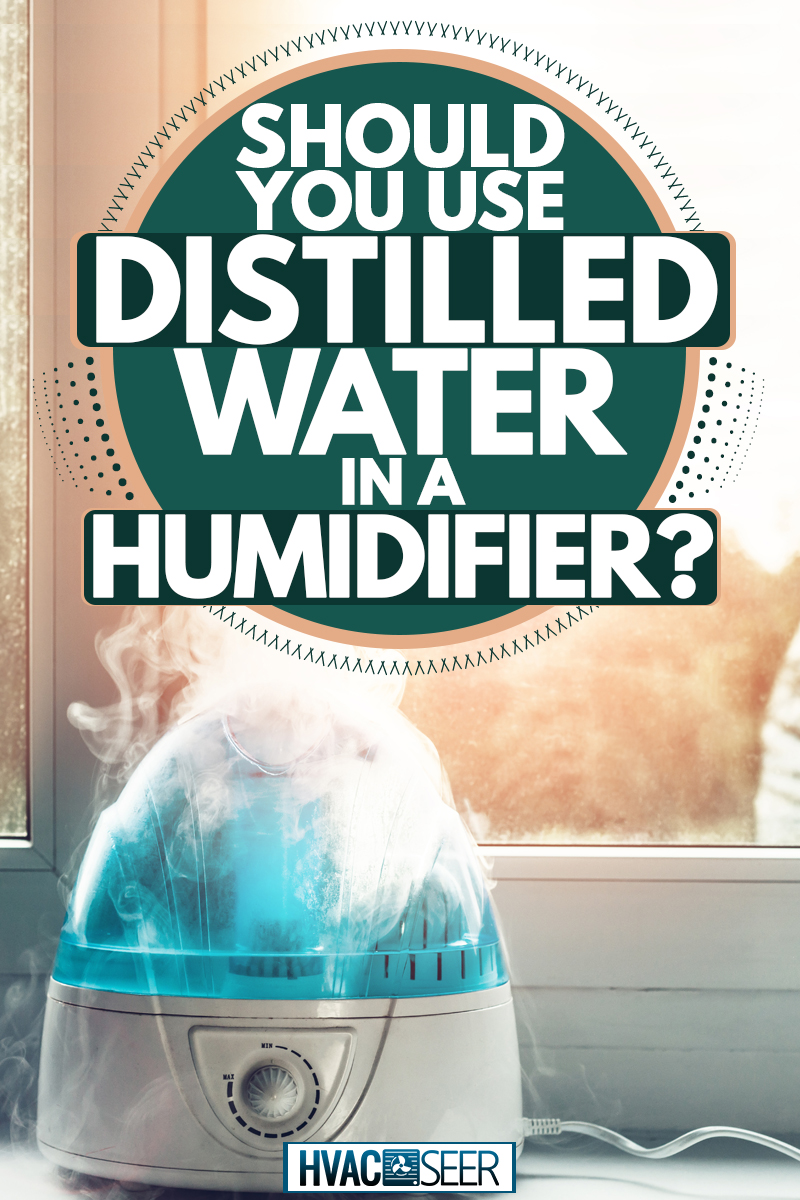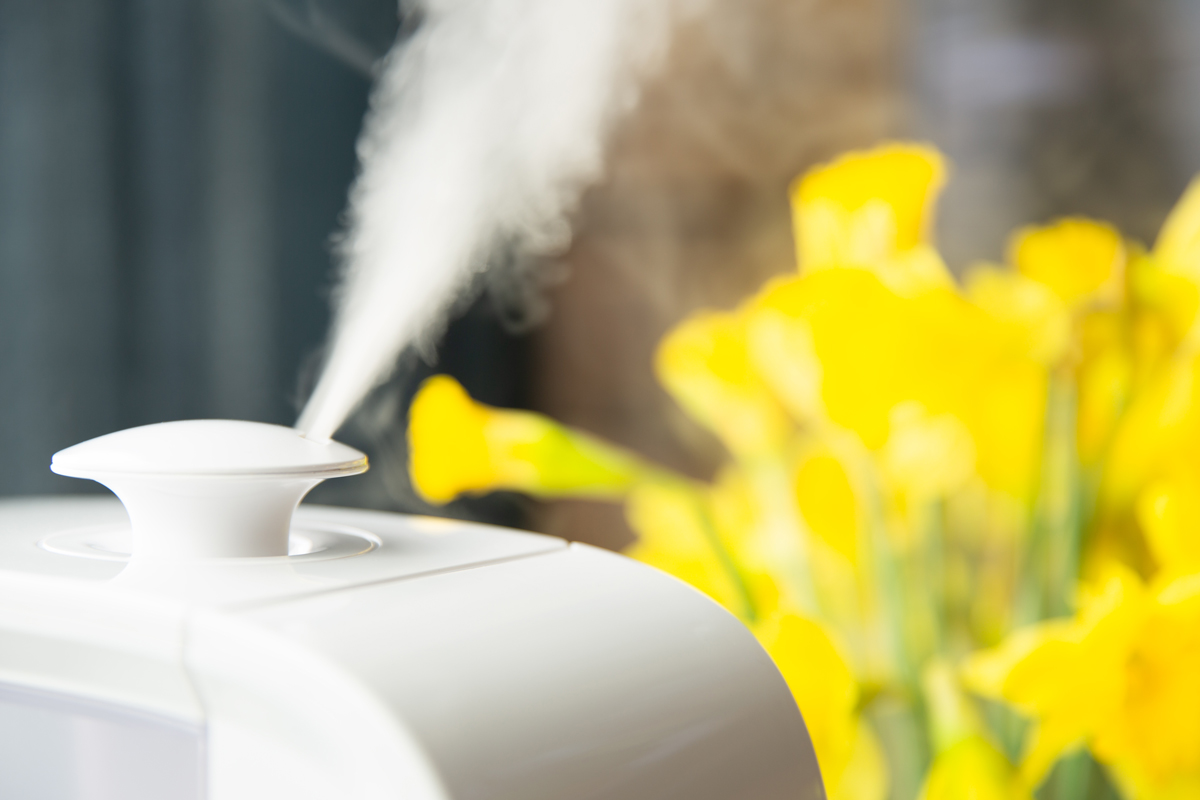Upon preparing to use a humidifier during the winter months or living in a more arid environment, it can sometimes come as a surprise that there are many different options for types of water available. After researching this topic, we have put together a comprehensive explanation of what is and how to use distilled water to clear up any confusion you might have concerning how different kinds of water can affect their machine's functionality and safety.
Experts recommend using distilled water rather than any other when supplying a humidifier. This prevents mineral deposits build-up, potentially contaminating your home and damaging your machine. Distilled water is the product of boiling water and collecting the condensation, resulting in an uncontaminated and mineral-free liquid. By comparison, the average tap water is laden with various vitamins, minerals, and sometimes purifying or fortifying chemicals such as fluoride and chlorine.
Now that we have discussed which type of water is ideal to ensure that your humidifier is running to the best of its ability, we can discuss why using the alternative options are less effective and sometimes even dangerous. Keep reading to find out more about why tap water-although convenient and easy to access, is not the most appropriate substitute for water that has gone through the distillation process.

The Downsides Of Tap Water Used For Humidifiers
According to a study done by the EPA, using tap water can leave undesirable white dust in your home and build-up, known as scale, within the machine. These are composed of the minerals often found in tap water that have been left behind from the humidifying process. Although the former is mostly just a nuisance, the latter can foster microorganisms' growth, making the machine less safe for use.
To prevent inhaling potentially harmful bacteria, minerals, and other materials that can be found in your tap water, doctors recommend maintaining a regular cleaning schedule and using distilled water for your humidifier. This protects not only your lung health but also the longevity of your humidifier.
How do you make distilled water for a humidifier?

Although distilled water can be bought by the gallon in most local grocery stores, you might still want to know how to make your own out of convenience. Before you can begin the distillation process, the proper materials and plan must be put into place. Gather two heat-safe pots, one large and one small, and one large lid.
Take both pots (one of which fits within the other to hold the water as it collects) and fill the larger of the pair with the tap water. Put a rounded lid upside down on the larger pot so that it can guide the condensation towards the smaller pot in the center as you heat the system. If you would like to speed up the process, feel free to place ice into the lid's inversion to cool the area where drips are forming.
When you are satisfied with the amount of water you have distilled, let the system cool down. Then pour the collected water into your humidifier with confidence that all minerals and contaminants have been removed. This is the most common way to distill water using household products, but more ways to do so can be found here.
What can you use instead of distilled water?
If there is no distilled water readily available and either no time or tools to begin the process of making it yourself, the second-best option is to use a water demineralization filter. These small devices are designed to protect against minerals' build-up and prevent them from entering the air.
Click here to see a demineralization humidifier cartridge on Amazon.
On a rare occasion, purified or demineralized water can be used when in a pinch. That being said, it must be noted that purified water does not ensure that all minerals and chemicals have been removed, as it is often used for drinking. Using this type of water still might result in scale development in the machine and a white residue in the air.
Click here to see demineralized water on Amazon.
Although resulting in a similar final product as distilled water in terms of removing inorganic compounds, demineralized water does not ensure that all bacterial contaminants and organic materials are removed. This means they still will end up being released into the air when using certain kinds of humidifiers.
Should a humidifier run all the time?
With the proper monitoring of your home’s humidity levels, it will often become apparent that constantly running your humidifier is unnecessary. When leaving your machine to run in excess, it is possible to find periods of uncomfortable mugginess and increase your likelihood of mold or bacterial growth.
In addition to oversaturating a room, one must supply a much larger amount of the proper type of water to the machine. The cost of refilling your device with distilled water frequently coupled with the potential risk of introducing extra moisture into your home means that paying attention to the general level of humidity in the air is beneficial for both your house and your wallet.
Click here to see a Bluetooth capable temperature/humidity sensor on Amazon.
In Conclusion
Humidifiers are a staple in households that face cold winters or particularly dry environments. Protecting you from dry coughs, itchy skin, and even the occasional bloody nose, the use of these machines can make otherwise arid places much more comfortable. Not only that, but when used properly, professionals at the Mayo Clinic say that humidifiers can be seen as a reliable way to lessen the symptoms of the common cold, flu, and other respiratory illnesses in a natural, healthful way.
By making sure to clean your humidifier regularly and prevent any mineral deposits from harboring bacteria, you offer relief from many discomforts seen throughout dry periods and sickness.
Please read our other related articles for even more information about air quality:



